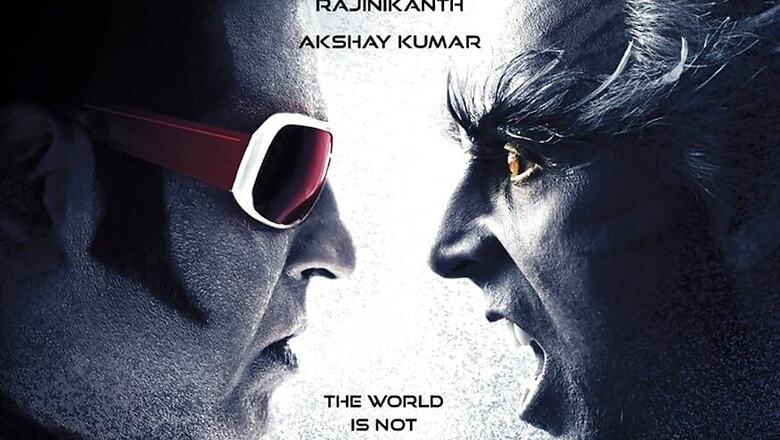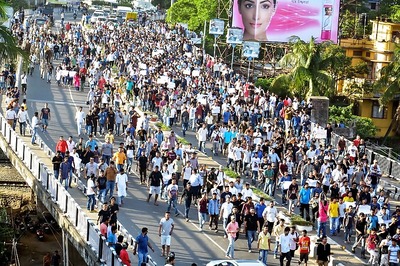
views
As much as the move to open cinemas in Saudi Arabia seems like a great New Year gift to the people of the ultra-conservative nation known for its dogmatic doctrines, the euphoria the royal decision has caused in the Tamil film industry must be taken with a pinch of salt.
Movies were banned in the Middle-Eastern kingdom in the 1980s under pressure from the radical Muslim clergy, but now with a wave of reforms being spearheaded by Crown Prince Mohammad Bin Salman – that has even permitted women to drive vehicles – the Tamil movie mandarins feel that their market in West Asia can go up by 25 percent.
Many countries in MENA or Middle-East North Africa have, since time immemorial, been fond of Indian films. Once, Raj Kapoor was a rage in Egypt, the man today having given way to Shahrukh Khan. But in the Gulf with its huge South Indian population – especially Malayalees and Tamils - movies from Tamil Nadu and Kerala have been a roaring success. In fact, they open a day earlier, on a Thursday, than they do in India. For the Muslim world, Friday marks the weekend.
With theatres all set to open in Saudi Arabia in March – and with 2000 screens planned by 2030 – Tamil films may well add another lucrative feather to its cap – which now stretches far and wide in the Middle-East and South-east Asia. Countries like Singapore and Malaysia with a huge Tamil population (in fact one of the official languages there is Tamil) have been highly profitable for south Indian movies.
Raju Mahalingam, Creative Head of Lyca Productions, said: “The overall revenue for a big film production can increase by 30%. Since movies have now begun to open in Hindi, Tamil and Telugu in India, we hope to release them in all three languages in Saudi Arabia too. A new market in West Asia, where a substantial number of Tamil and Malayalees stay, will be a big boost for our movies”.
Vishal, actor and president of the Tamil Film Producers Council, averred: “West Asia is a huge market for the Tamil movie industry. Saudi Arabia opening its doors will surely lead to an increase in revenue. We are also planning to study how this market is and what kind of films we can show there. We can even co-ordinate with the movie and tourism boards to take our films there.”
Rajinikanth’s 2.0 is likely to be the first major south Indian movie to open in the Saudi Arabian market, and is likely to release in Hindi, Tamil and Telugu.
However, the producer of such hits like Kuttram Kadithal and Jyothika-starrer Magalir Mattum, Christy Siluvappan, sounded the first note of caution. “We don’t know what kind of restrictions will be placed on the films by the censors in the kingdom,”.
But of course. Despite all the prudishness that Indian cinema is forced to live with, there is so much in it that may be totally unsuitable for the tradition-bound, highly conservative Saudi society. Can a Katrina Kaif or a Deepika Padukone be seen wearing the kind of revealing dresses they sport on screen. Even Tamil actresses have now begun to dress with a touch of the provocative. And kisses and smooches and rollovers and scenes even more intimate than these are very common in Indian films. Yes, even in Tamil movies.
Finally, it seems strange that while Indian cinema is being pushed into the dark ages, Saudi rulers are beginning to see the joys of the moving medium. And giving it a thrust!
(Gautaman Bhaskaran is an author, commentator and movie critic)
















Comments
0 comment